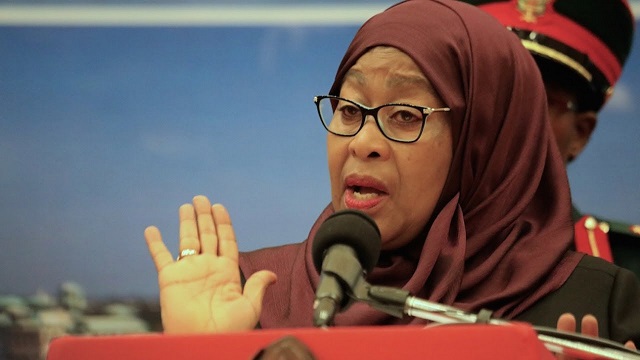
From heads of state like Samia Suluhu to influential diplomats like Bintou Keita, women are increasingly playing key roles in the continent’s politics and governance. From Ellen Johnson Sirleaf, the first democratically elected female president in Africa, to Fatma Samba Diouf Samoura, FIFA’s first female Secretary General, a new generation of women is paving the way.
SPECIAL REPORT | BIRD AGENCY | With more than a third of African countries headed to the polls in 2024, African women are showing increasing interest in holding leadership positions, including the presidency. Their stories inspire resilience, determination, and visionary leadership, serving as beacons for future generations of female leaders across the continent.
The following is a selected list of some influential women in African politics:
1. Sahle-Work Zewde, President of Ethiopia
A distinguished Ethiopian diplomat, Zewde made history in 2018 by becoming the first female Ethiopian president. Before her presidency, she held prominent roles within the United Nations, including serving as Special Representative of the Secretary-General to the African Union and Head of the United Nations Office to the African Union. Sahle-Work’s extensive diplomatic career also included leadership positions such as Director-General of the United Nations Office in Nairobi. She has been recognized for her contributions to peacebuilding and diplomacy across Africa.
2. Fatma Samba Diouf Samoura, Sec-Gen, FIFA
Senegal’s Fatma Samba Diouf Samoura shattered barriers in 2016 when she was appointed FIFA’s first female Secretary General. After pioneering work in sports governance, she’s now second-in-command to FIFA’s president, Gianni Infantino. Formerly a Senegalese diplomat and UN executive, Samoura led humanitarian efforts in Chad and served in crisis zones like Kosovo and Sierra Leone. Her trailblazing career earned her top rankings on Forbes’ Most Powerful Women in International Sports and she was included in the BBC 100 Women list as early as 2018.
3. Bintou Keita, Special Representative in the Democratic Republic of the Congo
Serving with the United Nations diplomat in the Democratic Republic of the Congo, Guinean diplomat Bintou Keita is one of the most influential women in Africa. With over three decades of experience, she has played pivotal roles in international diplomacy and conflict resolution. She served as the Deputy Joint Special Envoy for the African Union-United Nations Hybrid Operation in Darfur (UNAMID) in 2018 and as Assistant Secretary-General for Africa in 2019. She is currently head of the United Nations Organization Stabilization Mission in the Democratic Republic of the Congo (MONUSCO).
4. Emma Theofelus, Minister, Namibia
At just 28, Theofelus is one of Africa’s youngest female politicians and currently serves alongside another hugely influential woman – the country’s acting president, Nangolo Mbumba – as Namibia’s Minister of Information, Communication, and Technology. Before her political career, Theofelus was deeply involved in youth activism, focusing on gender equality, children’s rights, and combating youth unemployment. She held leadership roles such as Deputy Speaker of the Youth Parliament and Junior Mayor of Windhoek. Namibia has plenty of young upcoming woman politicians; MP and former Secretary-General of the Namibia National Students Organisation (NANSO), Patience Masua is just 24.
5. Ngozi Okonjo Iweala, Board Chair, Gavi Alliance, Nigeria
With over three decades in politics and leadership, Ngozi Okonjo-Iweala offers a wealth of influence and development experience. She has served as Nigeria’s Finance Minister twice, notably from 2011 to 2015, during which she also held the role of Coordinating Minister for the Economy. In 2006, she served as Nigeria’s Foreign Affairs Minister. Okonjo-Iweala has held pivotal positions at the World Bank, including that of Managing Director, further solidifying her reputation as a leader in global finance and development. She has been named by Fortune magazine as one of the 50 greatest world leaders and by Forbes as one of the 100 most powerful women for five consecutive years.
6. Samia Suluhu, President of Tanzania
Popularly known as Mama Samia in East African circles, Suluhu made history as the first female president of Tanzania in March 2021 after the death of her predecessor, John Pombe Magufuli. Having begun her political journey in 2000, her tenure has been marked by notable for building a strategic emphasis on infrastructure development, regional partnerships and global dialogue. Prior to her presidency, Suluhu served as a minister and was Tanzania’s first female vice president.
7. Mutale Nalumango, Vice President, Zambia
Mutale Nalumango is the 14th Vice President of Zambia and one of only two women to hold this position. She previously worked as an educator and served as Vice-President of the Secondary Schools’ Teachers Union of Zambia. Nalumango has held several prominent positions in Zambia’s political landscape, including serving as Deputy Minister of Information and Deputy Speaker in Parliament. She was the first woman to hold the position of Deputy Speaker.
8. Mariam Chabi-Talata, Vice President, Benin
Talata, 58, made history as Benin’s first female vice-president. A former teacher and school inspector, she joins a growing cohort of women ascending to higher office in sub-Saharan Africa, often advocating for feminist policies. Her appointment came in 2021, alongside the re-election of President Patrice Talon for a second term.
She has been termed controversial for being pro – abortion which has since been legalised. Talata is an avid supporter of girls’ education, having founded Benin’s Progressive Union party to spearhead the same. She was nominated for the prestigious African Female Leader of the Year Award.
9. Jessica Alupo, Vice President, Uganda
The ninth and current Vice President of Uganda since 2021, Alupo is a distinguished Ugandan politician, educator, and former military officer. Prior to her vice presidency, she held a prominent position in the Ugandan cabinet as the Minister of Education from 2011 to 2016. Notably, she’s the second female to hold the position of vice president in Uganda after Specioza Kazibwe.
10. Chief Justice Martha Koome, Kenya
Koome took office in May 2021 as the 15th Chief Justice of the Republic of Kenya and the 3rd President of the Supreme Court of Kenya. She made history as the first woman to hold the office of Chief Justice since the establishment of the Kenyan judiciary over a century ago. Of note, Koome campaigned to repeal Section 2A of the Kenyan Constitution. The success of that campaign converted Kenya into a multi-party state and introduced term limits on the presidency.
 The Independent Uganda: You get the Truth we Pay the Price
The Independent Uganda: You get the Truth we Pay the Price



